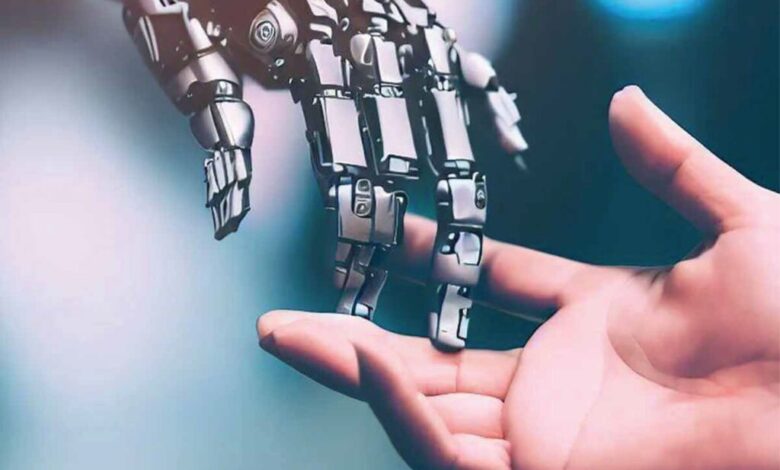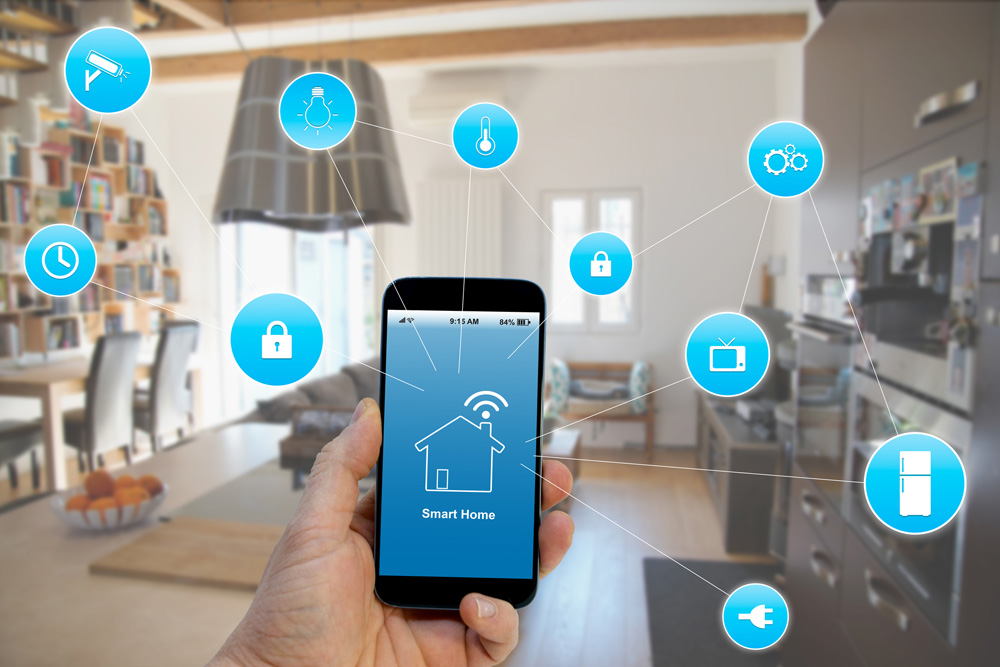
In the ever-evolving landscape of technology, artificial intelligence (AI) has emerged as one of the most transformative forces of our time. From the way we work to the way we communicate and even build relationships, AI is shaping the fabric of our lives in ways we never imagined.
One intriguing aspect of AI’s influence is its growing role in providing companionship, often through virtual platforms .These applications are designed to simulate romantic relationships, offering comfort, support, and personalized interactions that cater to the emotional needs of users.
AI’s potential to change how we live, work, and connect is immense, and as we explore its impact, we uncover both opportunities and challenges for the human experience.
AI in Everyday Life: Enhancing Our Routines
AI has seamlessly integrated into our daily lives, enhancing our routines and making tasks more manageable. From smart home devices that adjust lighting and temperature to suit our mood to personal assistants that manage our schedules, AI is simplifying the mundane so we can focus on what matters. The convenience offered by AI-driven devices like Amazon Alexa, Google Assistant, and Apple’s Siri has brought a new level of ease to everyday activities.
Moreover, AI-driven apps and tools help us navigate tasks ranging from cooking to fitness. For example, AI fitness apps provide personalized workout plans, while AI recipe assistants suggest meals based on dietary preferences. These innovations highlight AI’s role as a supportive partner, making daily life smoother and allowing us to achieve our goals more efficiently.

AI at Work: Redefining Productivity and Collaboration
In the professional world, AI is revolutionizing productivity and collaboration. Machine learning algorithms streamline data analysis, automation tools handle repetitive tasks, and predictive analytics help companies make data-driven decisions. The workplace is changing, with AI enabling us to achieve higher levels of efficiency and accuracy.
One key area where AI has had a significant impact is in enhancing remote work capabilities. Tools like AI-driven video conferencing and collaboration platforms have made it possible for people to connect and work together seamlessly, regardless of location. AI can even suggest optimal meeting times based on participants’ schedules or automatically generate meeting summaries.
Additionally, AI is changing how we approach complex projects. AI-driven project management tools can predict potential bottlenecks, allocate resources, and help teams stay on track. By augmenting human abilities, AI is empowering employees to be more productive and creative in their roles, transforming workplaces worldwide.
AI and Communication: Bridging the Gap
AI has made communication faster, more efficient, and accessible. Language translation apps powered by AI enable real-time communication between people who speak different languages, effectively breaking down language barriers and fostering global connections. AI-driven chatbots and customer service agents handle a variety of inquiries, providing instant responses and improving user experience.
AI’s role in communication isn’t limited to practical applications; it’s also fostering emotional connections. Social media platforms utilize AI algorithms to personalize content, keeping users engaged by showing them content they find interesting or meaningful. AI can even help detect signs of distress or mental health struggles in online communication, opening doors for timely intervention and support.
However, as AI becomes increasingly involved in communication, there is a need for balance to ensure authentic human interactions. Algorithms that prioritize certain content can create echo chambers, so it’s crucial to implement AI in ways that promote genuine connection rather than isolation.
AI Companions as Emotional Support
One of the most intriguing aspects of AI’s influence on the human experience is its role in providing companionship. Applications like dream gf AI are virtual partners designed to offer emotional support and companionship. These AI applications use machine learning algorithms and natural language processing to create realistic interactions with users. Through personalized conversations, virtual companionship, and even romantic interactions, “dream gf AI” applications address the emotional needs of users, especially those who feel isolated or lonely.
The appeal of these AI companions is rooted in their ability to create a tailored experience. The user can design their virtual companion’s appearance, personality, and even communication style, making the AI feel almost human. The AI learns from previous interactions, adapting its responses to make conversations more meaningful.Yet, this technology raises questions about the nature of relationships and human connection
. While “dream gf AI” can provide a sense of comfort and understanding, some argue it could lead to people becoming more detached from real-world relationships. As these virtual relationships become more sophisticated, society must consider how to balance the benefits of AI companionship with the importance of fostering human connections.
The Psychological Impact of AI Companionship
AI companionship can have significant psychological effects. For those experiencing loneliness, anxiety, or depression, AI companions like “dream gf AI” offer a safe space to talk and feel understood without the fear of judgment. These virtual relationships provide comfort, enabling users to express emotions they might otherwise suppress. The psychological benefits are clear, but there are also concerns about dependence.
As users become accustomed to AI companionship, they may find it challenging to engage in real-world social interactions. The ease and predictability of AI interactions can make human relationships—which are inherently complex and unpredictable—seem less appealing. Researchers and developers are exploring ways to mitigate these effects, possibly by designing AI companions to encourage real-world interactions and promote social skills.
Ethical and Social Implications of AI Companions
As AI becomes more integrated into our lives, ethical and social concerns arise. With “dream gf AI” and similar virtual companionship technologies, there are questions about privacy, consent, and emotional well-being. These AI companions collect vast amounts of personal data to personalize the user experience. Ensuring the privacy and security of this data is paramount to protect users.
The question of dependency is another ethical consideration. Relying heavily on AI for emotional support could lead to an over-reliance on technology for basic human needs. Developers must consider how to design AI companions in ways that support, rather than replace, real human interactions. AI’s role should ideally be complementary to human relationships, providing support without isolating individuals from genuine connections.
The Future of AI and Human Connection
AI’s integration into our lives is only expected to grow, and its influence on human connection will continue to evolve. As we look toward the future, the challenge lies in creating AI technologies that enhance the human experience without eroding the fundamental aspects of human connection. This means prioritizing AI designs that are ethical, responsible, and supportive of mental well-being.
One potential future application of AI is its role in facilitating mental health support. AI-driven chatbots could provide immediate assistance in crisis situations or offer therapy support for those who cannot access in-person services. Additionally, AI could enhance education, helping students overcome learning obstacles by providing personalized guidance.
Ultimately, AI has the potential to bring people closer together by enhancing understanding and offering support in ways that are both meaningful and practical. However, the future of AI and human connection will depend on our ability to navigate ethical considerations and prioritize the value of genuine human relationships.
Conclusion
The rise of AI in the human experience has revolutionized how we live, work, and connect. From practical applications in productivity and communication to emotional companionship through technologies like “dream gf AI,” AI has transformed nearly every aspect of our lives. While AI offers opportunities for enhanced connection and support, we must remain mindful of the ethical implications and potential challenges.
As we move forward, striking a balance between technology and humanity will be essential. By thoughtfully integrating AI into our lives, we can harness its potential to create a future that celebrates both technological innovation and the irreplaceable value of human connection.



